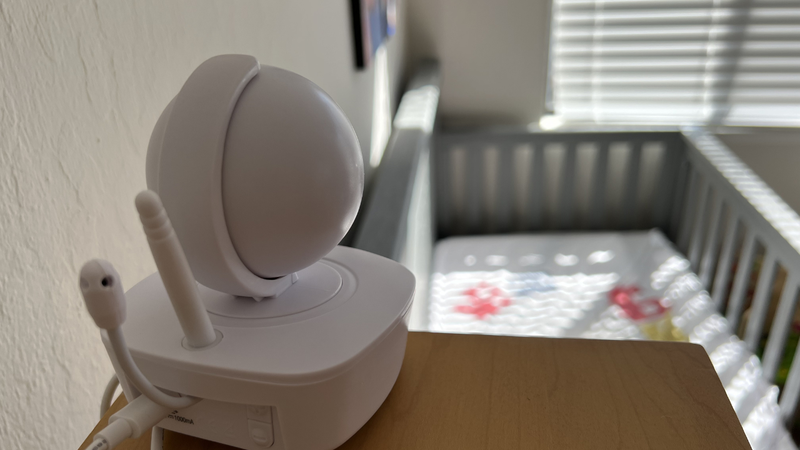
Lawsuit Over Baby Monitors Exposes Hidden Threat of Chinese Surveillance in American Homes
When parents buy baby monitors or home security cameras at retailers like Costco or Best Buy, they expect safety, not surveillance. Yet a new lawsuit filed by Nebraska Attorney General Mike Hilgers claims that Lorex, a popular security camera brand, has misled American consumers by marketing its devices as “private by design” while relying on technology from a Chinese surveillance company tied to Beijing’s intelligence apparatus.
This case underscores a larger and more urgent issue: China’s growing ability to infiltrate American homes, businesses, and critical infrastructure through seemingly harmless consumer products. What looks like a simple baby monitor may in fact be another tool in the Chinese Communist Party’s (CCP) campaign of data collection and influence.
The lawsuit centers on Lorex’s 2K Dual Lens Indoor camera, a product widely available online and in stores across the U.S. According to Hilgers, these cameras are nearly identical in appearance and function to models produced by Zhejiang Dahua Technology Co. — a Chinese surveillance firm sanctioned by the U.S. government for human rights abuses and national security concerns.
Dahua, like all Chinese companies, operates under China’s National Intelligence Law, which obligates firms to assist the government in intelligence activities when requested. This means that data from devices connected to Dahua’s systems can be accessed, monitored, and exploited by Beijing.
Lorex, however, has marketed its products as secure, even recommending them for use in highly sensitive areas such as nurseries and children’s bedrooms. For families who placed their trust in the brand, this revelation feels like a profound betrayal.
The Lorex case is not isolated. It is part of a broader pattern in which Chinese companies embed themselves in global technology markets to gain access to data streams. From Huawei’s push into 5G infrastructure to TikTok’s algorithm-driven social influence, the CCP has consistently blurred the lines between commercial innovation and state-directed espionage.
Each of these avenues is part of a larger Chinese strategy often referred to as “military-civil fusion” — the integration of commercial technology into state security objectives.
Some might dismiss concerns about baby monitors as exaggerated. After all, how could footage of sleeping infants pose a national security threat? The answer lies in data aggregation.
Even if individual videos seem trivial, large-scale access to consumer data can reveal:
This information becomes even more sensitive when combined with other data sources, such as health apps, financial transactions, or social media usage. For adversarial states, consumer devices are not about one family’s privacy — they are about mapping entire populations.
National security experts are already sounding the alarm. Michael Lucci, CEO of State Armor, has called for states to take immediate action against products like Lorex’s. His warning is blunt: “Lorex products shouldn’t just say ‘Made in China,’ they should say ‘Watching from China.’”
This statement captures the essence of the problem. Many Americans assume that foreign-made electronics are just about cost savings. In reality, the supply chain itself can become a pipeline for foreign surveillance.
The Lorex controversy is also a reminder that Chinese influence operations are not limited to U.S. soil. In recent years:
The risk to American families is not separate from these global activities. Every camera, every device, every seemingly small data leak feeds into a much larger intelligence machine.
The Nebraska lawsuit is an important step, but it also highlights how deeply embedded Chinese technology already is in American life. For years, inexpensive consumer electronics from Chinese firms have flooded U.S. markets. Without stronger oversight, countless homes may already be unknowingly vulnerable.
The consequences of complacency include:
While federal and state leaders debate regulation, consumers can take steps now to protect themselves:
Attorney General Hilgers has made clear that Nebraska’s case is about more than one company. “The Chinese Communist Party poses a direct threat to American security, including through market actors who exploit consumer trust,” he stated.
His words reflect a growing bipartisan understanding that America’s national security does not only hinge on military strength, but also on the privacy and safety of its citizens inside their own homes.
This lawsuit is a warning shot. If even baby monitors — marketed as safe havens for America’s children — can become Trojan horses for foreign surveillance, then no aspect of daily life is off-limits.
The Lorex lawsuit exposes an uncomfortable truth: what happens in American nurseries, living rooms, and backyards may not stay private. When consumer technology relies on Chinese surveillance firms, the line between product and espionage disappears.
For Americans, the message is clear. Vigilance is no longer optional. Whether buying a phone, installing a camera, or downloading an app, citizens must recognize that China’s strategy is deliberate, long-term, and deeply invasive.
National security begins at home. Protecting privacy is not only about safeguarding families — it is about defending the country itself from a foreign power intent on watching, learning, and exploiting every digital move we make.